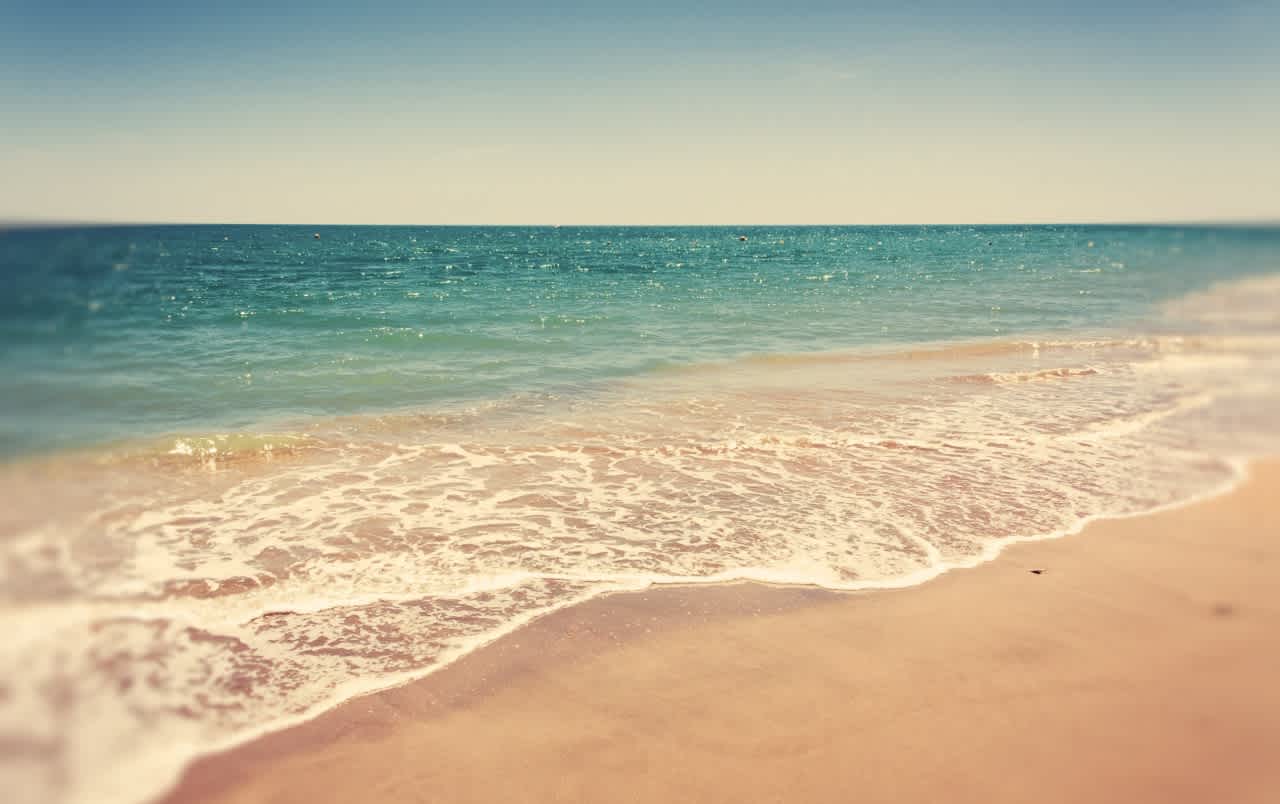
September 4th, 2015
On Bean Clams and Existentialism
The beach is one of those go-to relaxing images for many of us. I don't know if I've ever seen a white-noise machine that didn't come with the sound of waves, or a laptop that was sold without a stock image of the beach as a screen-saver option.
I sat on the shore of Atlantic Beach, Florida last week and thought to myself that it's no wonder we use this place to calm our nerves. Staring into the vastness of the ocean, hearing the rhythmic pounding of the waves, it's easy to gain new perspectives on our troubles.
One of my favorite things to watch when I'm at the shore are the bean clams. These are tiny little guys and gals that live just below the sand. When I was a little kid, I mistakenly called them donut variables (their scientific name is Donax Variabilis) and gathered them in a bucket so I could watch them dig into the sand.
Usually no bigger than your thumbnail, these little things are so cool to watch in large numbers. As a wave washes over them, the clams are sifted out of their sand-haven, and swished about in the surf, where they might be eaten by all manner of things. As the wave recedes, they quickly burrow back into the safety of the sand. And then a new wave comes, and they're momentarily dredged up again, only to burrow once more. And the cycle repeats endlessly.
Now, I'm not so bold as to pretend that I understand what happens in the mind of a bean clam, but I sure like to speculate that they have a valuable piece of knowledge: The waves will always come. When they burrow back into the safety of the sand, they know that they will be brought to the dangerous surface once again. They don't say that burrowing is futile just because they will have to fight for this safety again. This is not a fight that can ever be finished, yet they choose to work for safety and happiness in the here and now, because that's all that occupies their mind. They don't think about the waves that will come tomorrow.
They understand that nothing has permanence. Not the safety of the sand, not the peril of the waves. But that burrowing keeps them safe now. It keeps them safe here. It makes them strong for the next set of waves. They choose what option they have available to them, in the face of an ever-approaching ocean.
This past week, the "donuts" reminded me of a really nifty guy I know of, Viktor Frankl. Frankl was an Austrian psychoanalyst who was held in both Auschwitz and Kaufering. There, he mentally wrote his best-seller, Man's Search for Meaning. In it, Frankl discusses the differences in peoples' perceptions of the hell they were in during the Nazi occupation. He noticed that many people recognized the horror they were asked to endure, saw it as insurmountable, and behaved accordingly. Others, like Frankl, chose to play the hand they were dealt, and try their best to make lemonade out of some seriously rotten lemons. Frankl personally found meaning in his suffering and trauma by using his knowledge as a physician to aid other prisoners. Frankl didn't have a lot of great options to chose from while he was in the concentration camps. Yet, he chose to make effort, chose to fight for the life he could make for himself.
Burrowing into yourself, whether it be for safety or exploration, is hard work, too. So many of us have been so hurt by our pasts, our families, our relationships, that the damage feels irreparable. And it can be so frustrating to work hard for healing and happiness, when there isn't any guarantee that the safety or happiness won't be threatened again. In fact, we would probably be more accurate to guess that safety and happiness WILL be threatened again in the future.
Burrow anyway, my friends. There is one quote in Frankl's book that puts forward his whole idea: "Between stimulus and response there is a space. In that space is our power to choose our response. In our response lies our growth and our freedom."
The waves will always come. Whether it's a person you don't care for, pain from trauma in your life, a task you have to accomplish, or the regular stress of your day, it will always ebb and flow back to you. You can choose to stay dislodged and be thrown around in the surf, or you can choose to dig in, and burrow because it offers you something right here, right now.
As always, we're here to help guide you on your journey, and invite you to reach out.
Frankl's book was originally published under another name, and I wish they would have kept it...
Nevertheless, Say Yes To Life.